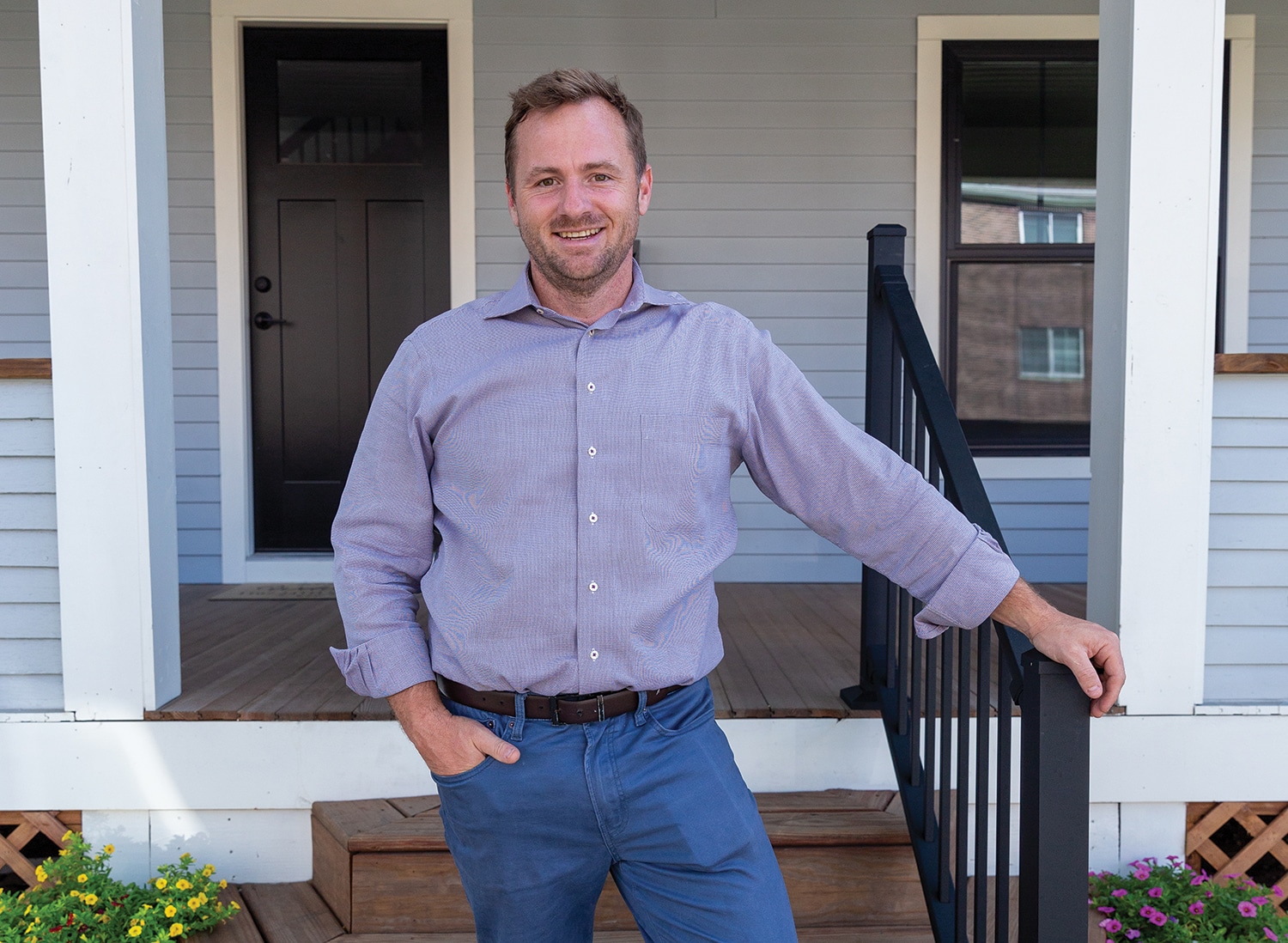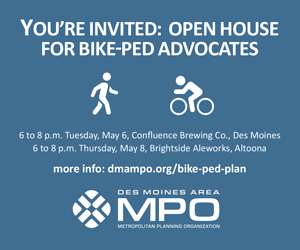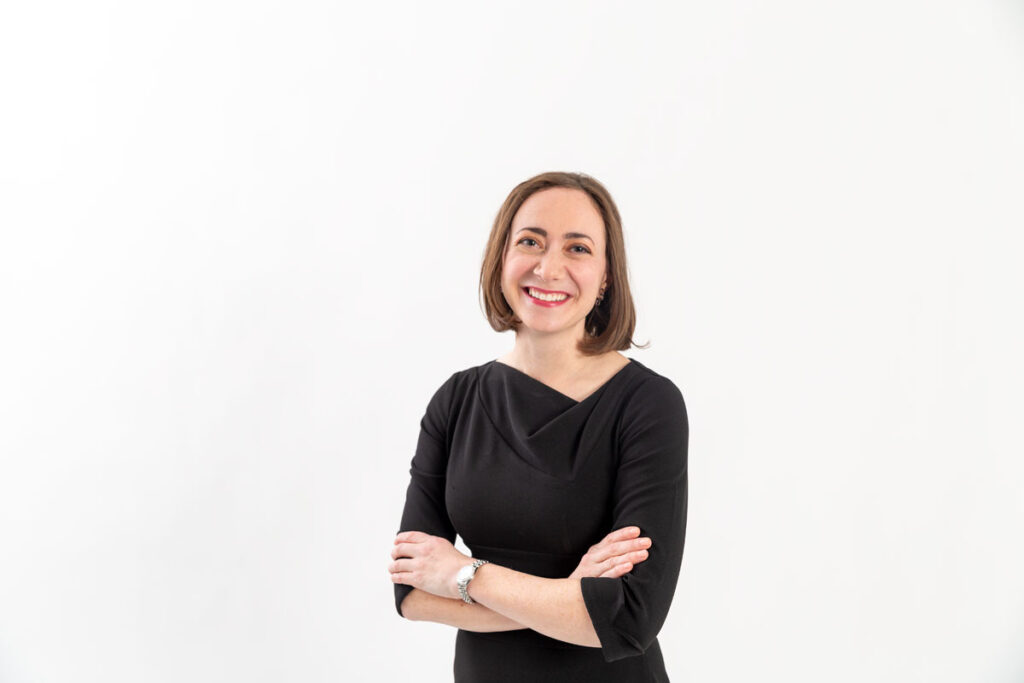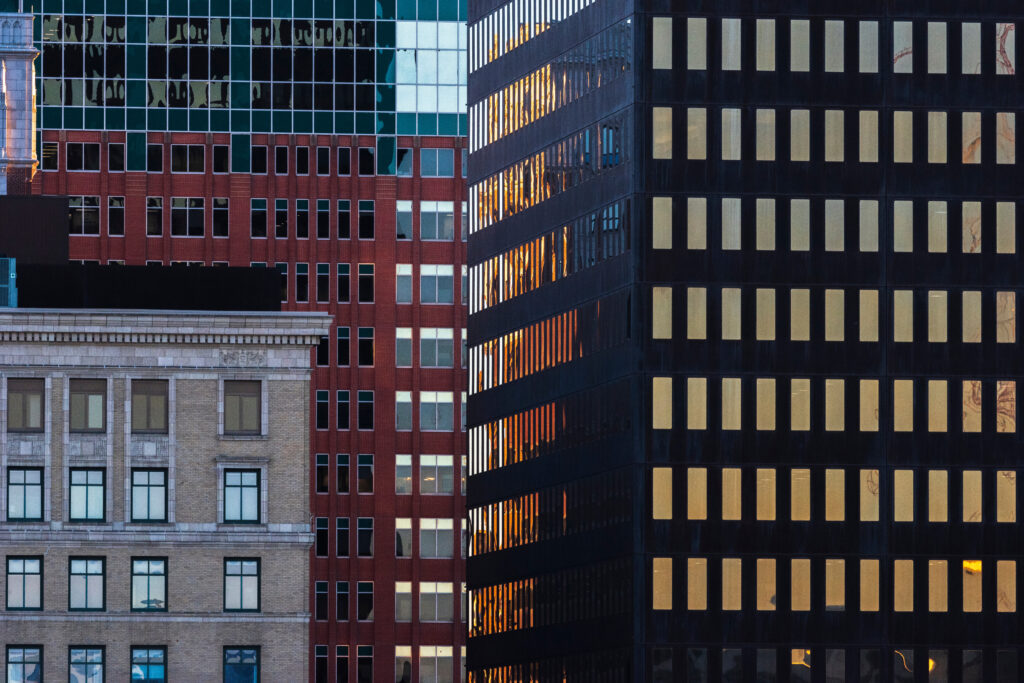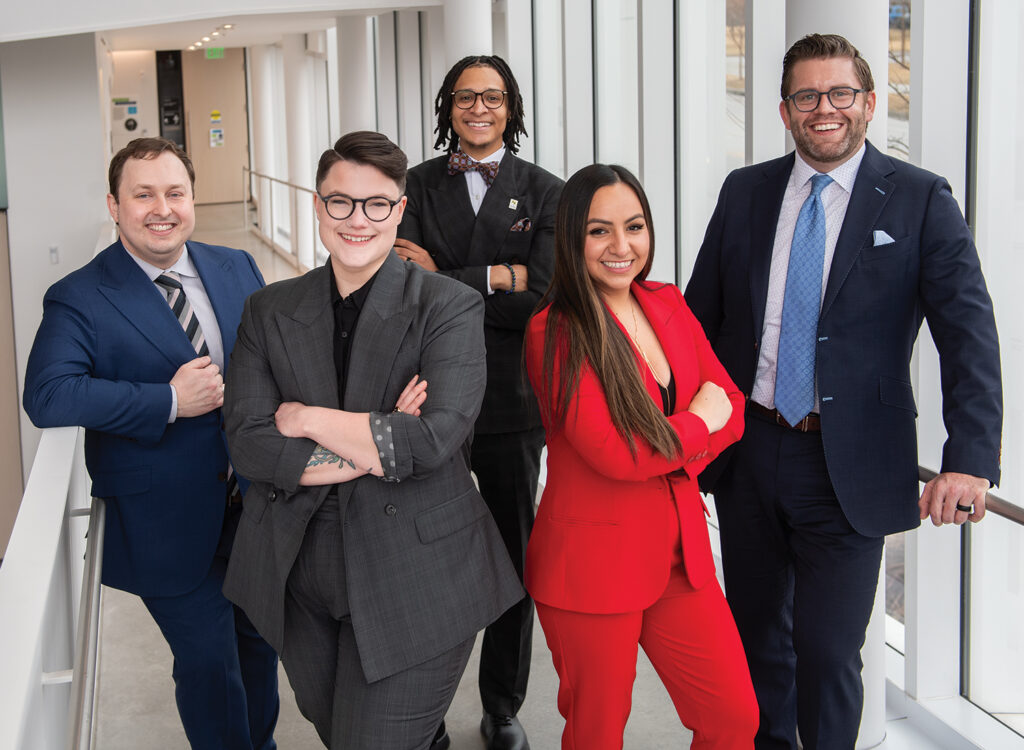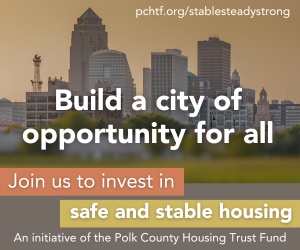Drake neighborhood seeing return of single-family homes
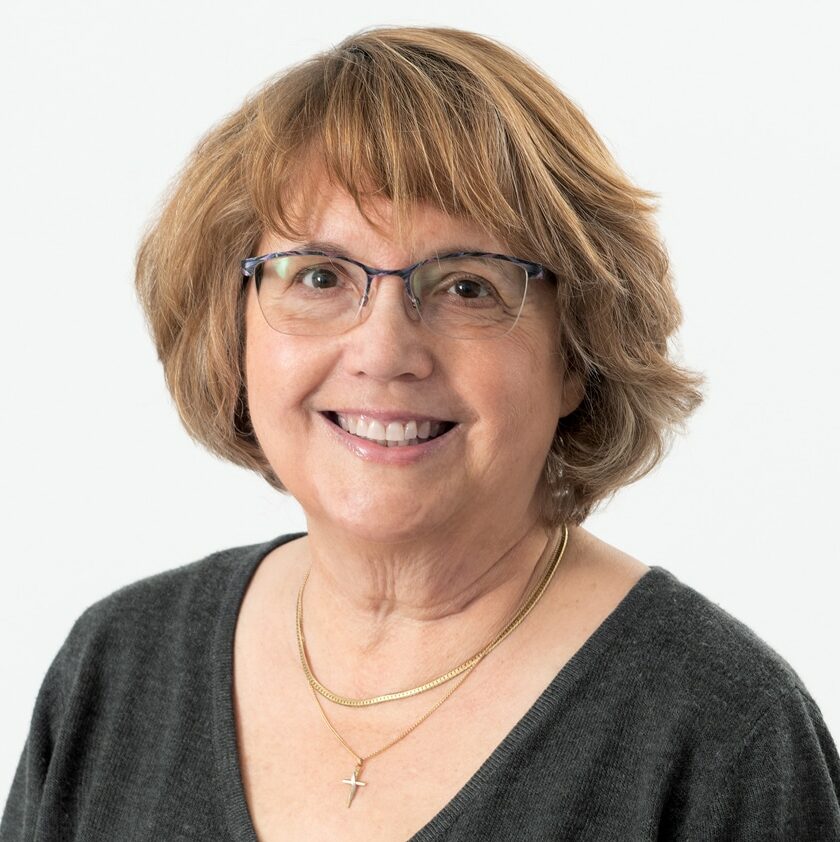
About four years ago, a new job brought Jena and Nick Ott to Des Moines from Indianapolis, where they had lived in a house that was more than 100 years old.
The couple, who have two young daughters, had initially hoped to find a similar-style home in Des Moines. When they couldn’t find one that fit their needs, they bought a condominium in the e5w Lofts in East Village, an urban neighborhood west of the Iowa Capitol building.
“I was hoping we could find urban and old,” Jena Ott said. “We got urban and we loved it.”
Eventually, though, the couple began “getting the itch” for a house, Ott said. This spring, Ott and her 5- and 7-year-old daughters spent about an hour driving through the Drake neighborhood, assessing houses that were for sale.
A sign in the front of houses at 1103 and 1107 24th St. caught Ott’s attention. “It was huge and a sign in front said ‘Full house remodel,’” Ott said. She emailed Eric Quiner, a real estate agent who specializes in older home restorations through his company, Q Enterprises LLC, and who owned the properties. The next day, she toured the houses.
“I was immediately sold,” Ott said. “As soon as I saw the staircase and the remodeled kitchen, I knew it was what we had been looking for.”
In mid-June, the Otts finalized the purchase of the house at 1107 24th St.
The two houses, which Quiner refers to as “the twins,” are among 12 residences in the Drake neighborhood that have been returned to their original single-family use. One of the 24th Street houses had been converted to a seven-plex, the other to a six-plex, Quiner said. “They were in really disgusting shape.”
Quiner participated in Invest DSM’s single-family developer program that helps bridge the financial gap between purchase and renovation costs of a property and its resale price.
How the program works
Quiner acquired the property at 1107 24th St. for $105,000 and said he spent well over $400,000 on renovation costs. The property sold for $429,000, real estate records show. The Invest DSM grant will cover the difference between the sale price and renovation and purchase costs. Over $400,000 was also spent on the house at 1103 24th St., which also has sold and for which Quiner will receive an Invest DSM grant.
“The projects really wouldn’t have been financially feasible without that help,” Quiner said.
Invest DSM, launched in mid-2019, is a joint effort between the city of Des Moines and Polk County to expand revitalization efforts in the city’s neighborhoods. The nonprofit Invest DSM’s programs began in the neighborhoods of Columbus Park, Drake, Franklin and Highland Park/Oak Park, and in 2025 will expand into Union Park, North of Grand and Woodland Heights. The neighborhoods have been designated Special Investment Districts, which allows property owners to access a variety of revitalization grants.
During the 1920s and the 1950s, many of the neighborhood’s larger Queen Anne Victorian and American Foursquare homes were converted to multifamily residences to provide housing to people attending Drake University and those returning from World War II. A longtime goal of the Drake Neighborhood Association is to return structures that had been converted to multifamily back to single-family homes, many of which were built 100 or more years ago.
The Drake area is roughly bounded by Franklin Avenue and Interstate Highway 235 and 41st/42nd streets and Martin Luther King Jr. Parkway. The area has 1,663 property parcels, 80% or 1,343 of which are residential, according to information provided by Invest DSM. About 22% of the parcels, or 360, have rental certificates.
In addition, 201 parcels currently include single-family homes that have been converted to duplexes or multifamily residences. Those parcels include 652 units, county assessor information shows.
Since 2019, Invest DSM either has or is returning eight multifamily conversions in the Drake area to single-family residences. Four other restorations have been completed through the entity’s single-family developer program, which is available in all of the Special Investment Districts. Invest DSM’s goal is to complete a total of 20 reconversions in the Drake area by 2029.
“When these homes were built, they weren’t built to accommodate six to eight units and all the cars and trash that go with that,” said Amber Lynch, Invest DSM’s executive director. “The neighborhood has seen a lot of [areas] where an entire block has turned over to these conversions.”
Over time, many of the properties were poorly maintained, negatively impacting the quality of the area and property values, Lynch said. The goal of the neighborhood association, as well as the city, has been to encourage multifamily housing along major thoroughfares such as University and Forest avenues and Martin Luther King Jr. Parkway, where buses operate and services are located, she said.
Redeveloping a converted residence usually is expensive, Lynch said. Multiple kitchens and bathrooms – and their plumbing – need to be removed. Walls must be demolished that had been erected to separate the house into apartment units. Extra electrical wiring that was added to the units also needs to be removed.
“From a market perspective, you can’t do all of that and be profitable,” Lynch said. “That’s where our single-family developer grant program comes in to fill that gap. … Otherwise, doing these types of projects wouldn’t be feasible.”
‘Improvement contagious’
The houses at 1103 and 1104 24th St. were each stripped to their original shell, Quiner said. “Even though we’ve modernized, you still have many prominent features. We preserved the staircases and … the siding is era-specific.”
Quiner, who renovated a third house in the neighborhood, said improvement projects cause a ripple through an area. “Improvement is contagious,” he said. “When one property gets improved, then another one in a block gets some work done on it, and then another one.”
Providing an equal balance of rental and owner-occupied housing in a block is a goal of Invest DSM, Lynch said. “It’s important to have rental there. At the same time, you have less of an investment when you [live] there temporarily and because you don’t have ownership of the structure.”
Courtney Ackerson, president of the Drake Neighborhood Association, said the group applauds the return of single-family housing to the area. However, the association also wants the neighborhood to provide a mix of housing to a range of income levels, she said.
“We don’t want to price people out of the neighborhood and we don’t want to exclude people from the area,” said Ackerson, who has lived in the neighborhood for nine years. People who have had good experiences renting in the Drake area may decide to buy a home in the neighborhood or live in another rental unit, she said.
“That helps provide stability,” Ackerson said. “So does homeownership. The owners are more invested in their properties and that helps make for better neighbors and better neighborhoods.”
Providing a range of housing options in neighborhoods helps employers attract workers who want to live near where their jobs are located, Lynch said. “Whether you are an entry-level worker or a C-suite officer, we have housing options for you in Des Moines proper. They don’t have to look elsewhere in the region for those housing options.”
Quiner said his hope is that the houses he’s renovated will continue to be used for another 100 years.
“We’ve put a lot of quality products into these houses and they have a lot of timeless elements in them,” Quiner said. “I can see them still being here in 100 years.”

Kathy A. Bolten
Kathy A. Bolten is a senior staff writer at Business Record. She covers real estate and development, workforce development, education, banking and finance, and housing.
